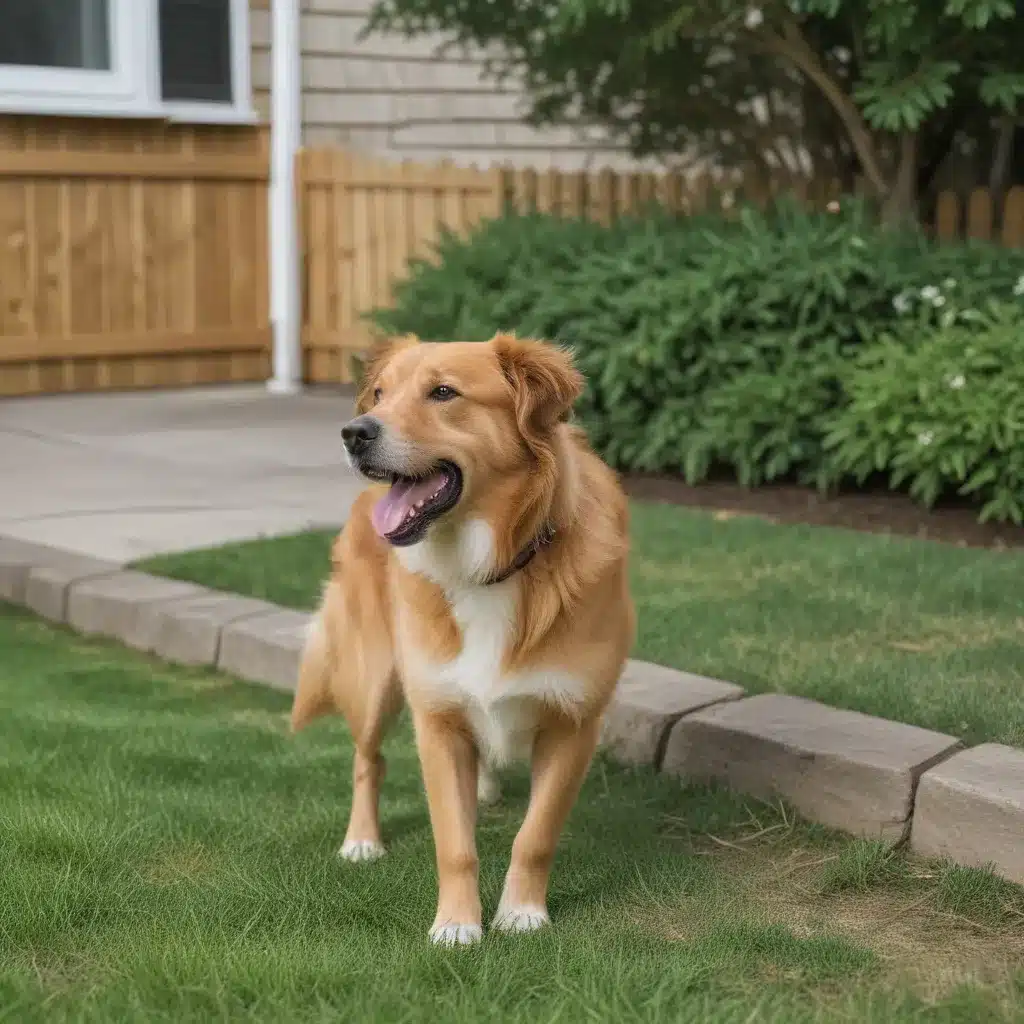
Unleashing the Bark Busters: Mastering Canine Vocalization
We’ve all been there, haven’t we? That moment when you’re trying to enjoy a peaceful afternoon, only to be rudely interrupted by the incessant yapping of your neighbor’s dog. Or perhaps it’s your own furry companion that’s driving you up the wall with their nonstop barking. Whatever the case may be, dealing with nuisance barking can be a real headache.
As a proud dog owner myself, I know firsthand the challenges of managing a vocal pup. But fear not, my fellow dog enthusiasts! I’ve done the research, consulted the experts, and I’m here to share my tried-and-true tips for curbing that canine cacophony once and for all.
Identifying the Root of the Problem
The first step in tackling any barking problem is to understand what’s behind it. As the experts at WebMD explain, dogs bark for a variety of reasons, from territorial protection to boredom and loneliness.
Take my own pup, Rufus, for example. When we first brought him home, he would go into a barking frenzy every time the mailman came by. We quickly realized this was a territorial/protective behavior, and we needed to address it before the neighbors started questioning our sanity.
On the other hand, there’s my friend’s dog, Daisy, who seems to bark at the slightest provocation – a bird, a car passing by, or even the sound of a squeaky toy. In her case, it’s more of an alarm/fear-based response, which requires a different training approach.
Understanding the underlying motivation behind your dog’s barking is crucial if you want to find a lasting solution. So, take some time to observe your pup’s behavior and body language, and you’ll be well on your way to curbing that nuisance noise.
Putting an End to the Incessant Yapping
Now that we know the root of the problem, it’s time to put our dog training skills to the test. The experts at the American Kennel Club have some excellent recommendations to help you get your pup’s barking under control.
One of the most effective techniques is the “quiet” command. Using a calm, firm voice, simply tell your dog to “be quiet” and reward them with treats and affection when they obey. This helps reinforce the behavior you want to see, rather than inadvertently rewarding the barking.
Another strategy is to address the underlying cause of the barking. If your dog is barking out of boredom or loneliness, make sure they’re getting enough physical and mental stimulation throughout the day. A tired dog is a well-behaved dog, as they say. Try taking them on longer walks, playing fetch, or even investing in some interactive toys to keep them entertained.
For those pesky territorial barkers, limiting your dog’s access to windows and doors can make a big difference. Covering up those tempting views can take away the trigger for their barking. You can also try introducing your pup to the potential “threats,” like the mailman or the UPS driver, and having them give your dog a tasty treat. This helps create positive associations and can curb that territorial instinct.
Barking up the Right Tree: A Holistic Approach
Of course, every dog is different, and what works for one pup might not be as effective for another. That’s why it’s important to take a holistic approach to managing your dog’s barking behavior.
In addition to the training techniques mentioned above, you might also consider investing in some anti-bark devices, like citronella or ultrasonic collars. These can be helpful in certain situations, but it’s crucial to use them with caution and never as a replacement for proper training.
And let’s not forget about the power of exercise and mental stimulation. A well-exercised and mentally engaged dog is far less likely to resort to excessive barking as a way to alleviate boredom or pent-up energy.
So, if you’re struggling with a barking problem, don’t be afraid to try a multi-pronged approach. Combine training, environmental management, and enrichment activities, and you’ll be well on your way to enjoying a blissfully quiet home – or at least one with a more melodious canine soundtrack.
Unleashing Your Inner Dog Whisperer
At the end of the day, managing your dog’s barking is all about patience, consistency, and a deep understanding of your furry friend’s needs. It may take some time and effort, but trust me, it’s worth it to reclaim your peace and quiet.
And who knows, you might even discover a newfound appreciation for your dog’s vocal talents. After all, a little barking can be a sign of a healthy, happy pup. Just make sure it’s not keeping the whole neighborhood up at night!
So, let’s get to work, fellow dog lovers. With the right strategies and a whole lot of love, we can turn those nuisance barks into a symphony of canine contentment. And if you’re ever in need of a little extra help, don’t hesitate to reach out to the team at I Have Dogs – they’re always happy to lend a paw.

